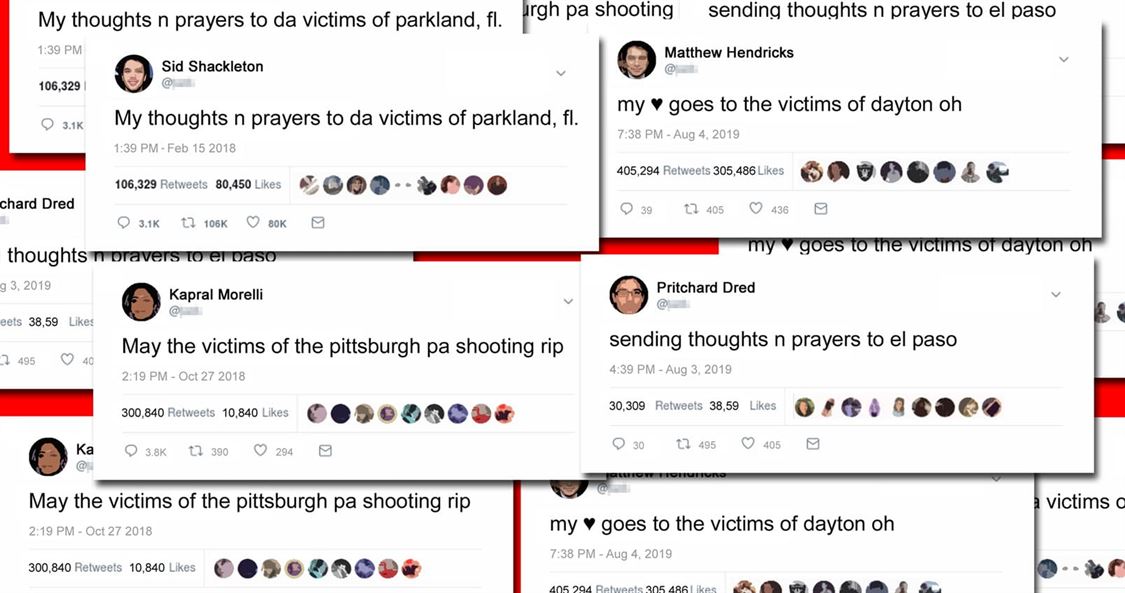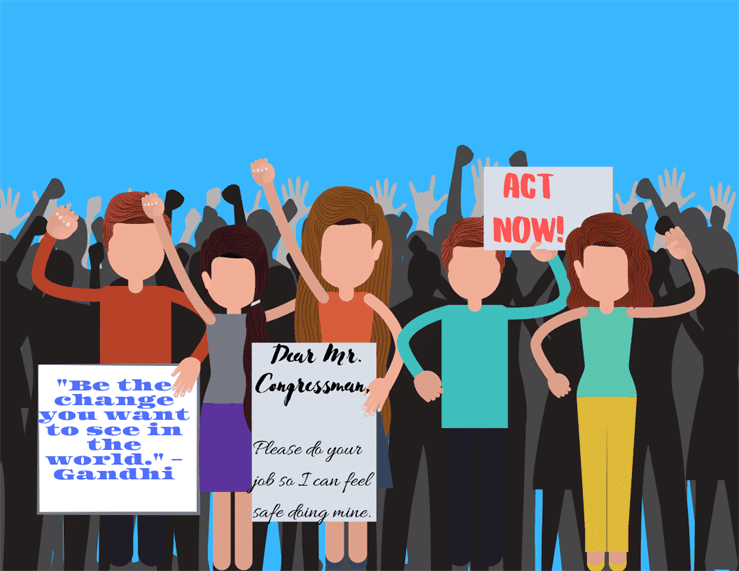The week of July 28 began with what many Americans have gotten used to over the past few years. They turned on the TV and scrolled through their social media feeds to see that yet another mass shooting had just occurred at a garlic festival in California.
Two days later, a Walmart in Mississippi became the scene of another tragedy that left two dead and an officer wounded.
By the weekend, two more mass shootings occurred less than 24 hours of each other in a mall in El Paso, Texas resulting in another 22 killed and the other at a bar in Dayton, Ohio that added nine more deaths to the total count.
A usual response to these tragedies from college students is a social media outburst, consisting of “thoughts and prayers” posts and people changing their profile photos in unity to send a message. After years of this routine, it has proven to not be enough to create change in this country.
The term for this exercise is known as “slacktivism,” which is doing the bare minimum to help a cause and is usually associated as a form of narcissism as people draw more attention to themselves than the issue.
https://twitter.com/soffbirb_/status/1164288741495771136
While the act of sending thoughts and prayers shows unity, it lacks the passion of those who go out and fight for the same causes.
There is a lot more that needs to be done to add necessary legislation. People think it’s easy to sit and use their voices behind a computer screen with hundreds of followers liking and retweeting their posts, but many of them don’t even think about the traditional way of advocating for themselves.
https://twitter.com/ThatJacobGuy03/status/1164271131026710528
Social media did not exist in the 1960s when thousands of African Americans were fighting for civil rights in the United States. They went out into the world and protested, boycotted, marched and spoke to the people about what they believed was right.
It took many years for them to achieve their goal, but they did more than use 280 characters to send their message and make a difference.
If our generation is so passionate about gun control on social media, they should take that energy to the people who can fix it. All you need is a voice to take to the steps of the State House, Capitol Hill and even the gates of the White House.
https://twitter.com/kenz_robertson/status/1142553926815887361
One of the benefits of social media is it allows people to easily find events such as protests that are going on around the country and assemble as a group.
With a simple search on Google or Facebook you can find upcoming events or groups that advocate for the same beliefs.
Our generation needs to not be afraid to speak out about the issues that matter to us. Instead of just sharing your thoughts and prayers on social media, try posting a letter you sent to your congressman and encourage others to do the same. Post a photo of a poster you made for a protest and encourage others to join or share a petition for people to sign.
since everybody is tweeting about anti-abortions laws and pro-choice. here is the link for planned parenthood donation page so we as millennials don’t fall into slacktivism and are actually doing something. https://t.co/d9wTFTbfXq
— Evonne Le (@evonnayyy) May 16, 2019
Social media has been a way for millions of people to magnify their words, but the constant sharing and retweeting of “thoughts and prayers” will continue to overcrowd people’s feeds and eventually disappear.
By igniting a call to action, these issues are brought back into light while encouraging others to become more involved. These are the words that have a greater chance of creating change.
There is nothing wrong with showing support and empathy for a cause on social media. It has easily given all of us an opportunity to create a platform for ourselves, but it doesn’t mean that we can solely rely on it to fix all of our problems. It should be used in conjunction with more strong, verbal and peaceful acts of unity.
We need to advocate our beliefs and needs by using our real voices, not just our words.




